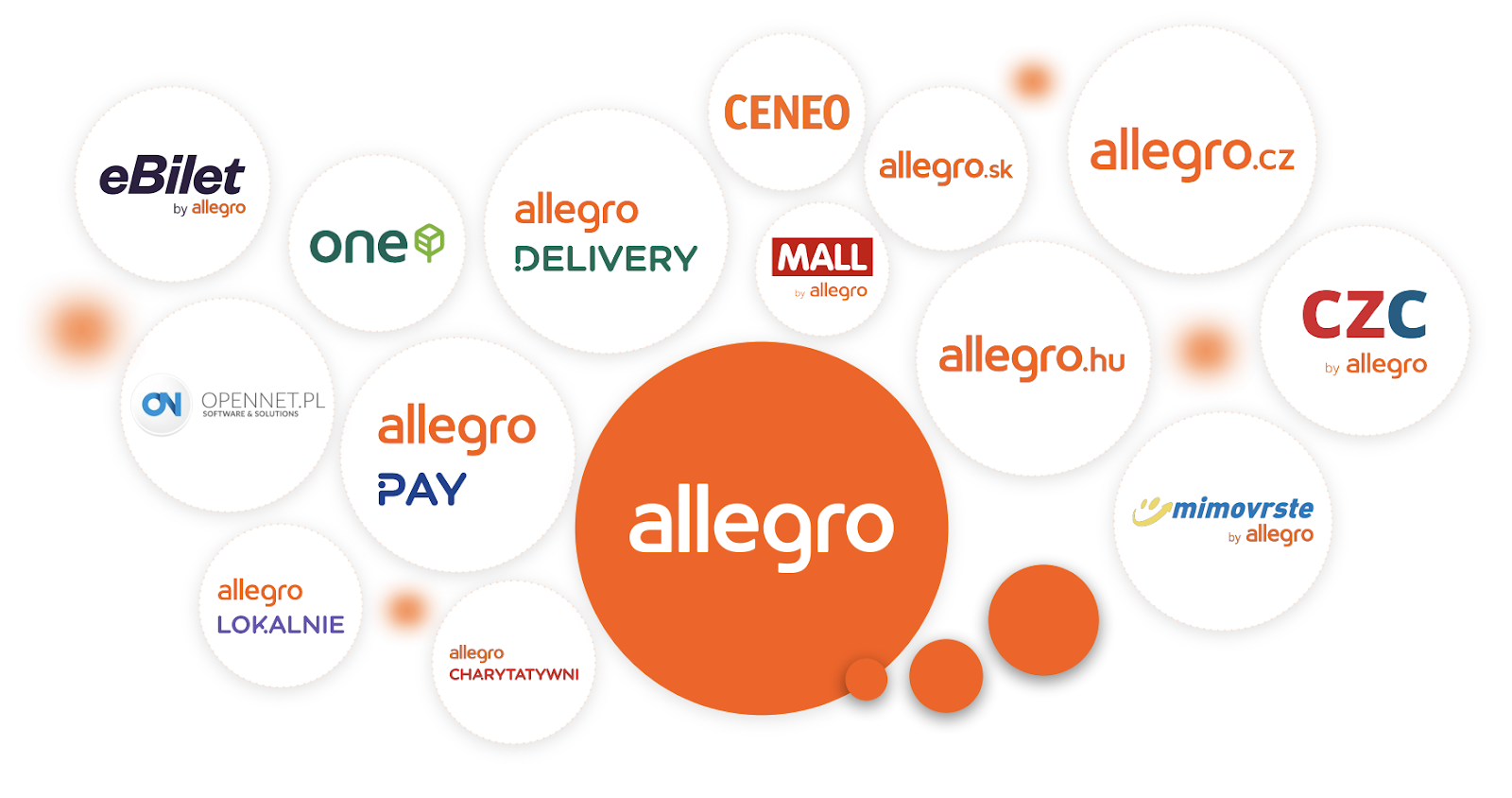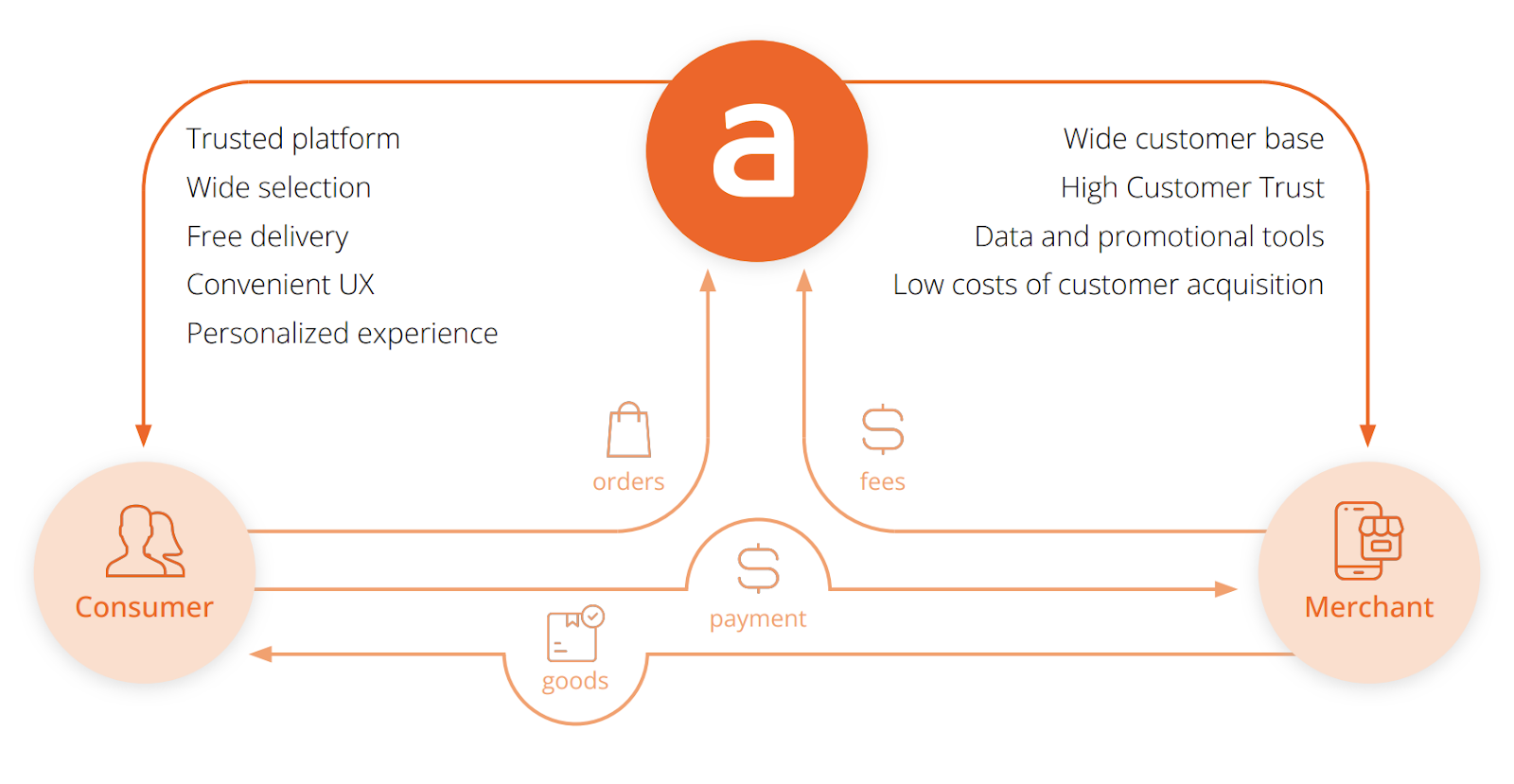How Allegro helps brands build local trust in the CEE market
Written by
Editorial TeamPublished on
Discover how Allegro helps global brands build trust and grow faster in the CEE market by leveraging its local reputation, infrastructure, and buyer loyalty. Learn why trust is the key to success in Poland and beyond (Ad).

Commercial Collaboration
For many global brands, entering the Central and Eastern European market starts with spreadsheets and ends with supply chains.
Reach, conversions, logistics… it all looks good on paper.
But what doesn’t show up in forecasts is how local trust works. It’s not won by default. It’s not a byproduct of paid ads or speed alone. And it’s rarely given to unfamiliar names, no matter how polished the branding.
That’s where Allegro changes the game.
More than a high-performing marketplace, Allegro acts as a regional trust amplifier: a platform so familiar, so embedded in everyday online shopping across Poland and its neighbors, that simply showing up on it gives brands a leg up. In a market where reputation spreads fast and skepticism runs deep, that kind of local trust is hard to build… and even harder to fake.
And if you need data to back it up – Allegro’s operations contribute approximately 1% to Poland’s GDP [source in Polish] and gross value added, underscoring its significant role as a key player in the national economy.
This article breaks down how Allegro helps brands move from outsider to trusted name in the eyes of CEE consumers – and why that matters more than ever.
Local-first means trust-first
In the CEE e-commerce reality, you won’t go far without trust.
Shoppers in Poland, Czechia, Slovakia, and Hungary are highly selective about where they buy, who they buy from, and what platforms they rely on for everyday purchases. Allegro has spent over two decades becoming that go-to platform – not just because it’s big, but because it feels local.

Roughly 60% of Allegro’s merchants are based in small towns and villages in Poland.
That stat matters: it shows that Allegro is embedded in the same communities it serves. People recognize the names behind the storefronts, recommend them offline, and trust that support is just a parcel locker or click away.
And with over 21 million active buyers in the region, Allegro has effectively built its own trust economy. The marketplace has its own rules, norms, and expectations that consumers understand intuitively – from how fast orders should arrive, to how returns are handled, to what counts as “a good deal.”
When a new brand plugs into that system, it’s not starting from scratch – it’s inheriting that trust architecture.
This is what sets Allegro apart from generic sales channels or paid search campaigns. It’s traffic that comes with expectations of reliability, familiarity, and low friction. And for brands entering the region, that can mean the difference between immediate traction and slow, costly education.
Trust by association: leveraging Allegro’s brand equity
Building trust from zero is expensive.
46% of consumers are willing to pay more to buy from a trusted brand, meaning companies that begin with no reputation (zero trust) must work much harder – and often spend much more on marketing, quality assurance, and customer engagement – to reach that trusted status.
Fortunately, brands don’t have to do it alone. On Allegro, simply being present puts you in good company – and that company carries weight.
Allegro is one of the most recognized and trusted online platforms in the region. In Poland alone, it has 88% brand awareness and reaches over 70% of marketplace users each month.
That level of saturation turns Allegro into more than a sales platform – it has become a familiar frame of reference. If you’re listed there, you must be legitimate.
This effect is especially powerful for new brands. When your product appears next to thousands of well-reviewed, high-performing offers, it inherits a layer of credibility by proximity. It’s a kind of reputation piggybacking that shortens the buyer’s hesitation window and often tips the scales in your favor.
The effect multiplies when you qualify for Allegro Smart!, the platform’s popular loyalty program. With over 8.3 million users in CEE, Smart! members shop more frequently and are significantly more likely to choose offers marked with the Smart! badge. Only sellers who meet high standards – such as a minimum 98% recommendation rate and 5 recent positive reviews – are eligible.
Read more: How to start selling on Allegro
For brands, it’s more than just a badge – it displays a trust signal that triggers faster adoption and greater visibility.
In markets where shoppers are cautious with their wallets and selective with unfamiliar names, trust by association is a strategy. And Allegro makes it work at scale.
Trust by experience: delivery, returns & familiarity
In CEE, convenience is often not enough to win loyalty. Predictability is what builds trust. Shoppers want to know exactly what happens after they click “buy.” How fast will it arrive? What if it doesn’t fit? Can I return it without hassle?
Allegro has spent years refining these answers so that brands don’t have to.
The platform’s delivery promise is consistently fast. Over 85% of Allegro orders arrive within 1–2 days, with more than 45% delivered the next day, and a fulfillment accuracy rate of up to 95%. That kind of reliability trains buyers to trust the process.
Returns are just as important. Allegro’s infrastructure includes One Boxes and thousands of pickup/drop-off points (PUDO) across the region for a seamless return flow. Buyers know how to send items back, who handles the refund, and what to expect – removing the anxiety often associated with trying out a new seller.
For Smart! users, free delivery and returns are part of the routine. Allegro has covered over PLN 2.3 billion in Smart! delivery costs since the program began, reinforcing a sense of value and fairness for the buyer.
From the shopper’s point of view, all of this adds up to a purchase experience they already trust. And for brands entering the region, it means they don’t need to build their own delivery playbook from scratch. They just need to plug into Allegro’s… and let the platform do what it does best: remove doubt.
Cultural localization that goes beyond translation
Selling in CEE comes with a few challenges, and, for many, one of them is about speaking the language. However, in CEE, it’s often more about understanding the context than the language itself. For example:
- Consumers in Poland don’t shop like those in Slovakia.
- Hungarian buyers care about different delivery methods than Czech ones.
- And while English may be common across markets, trust is built in native-language clarity, not vague localization.
Allegro gets this.
That’s why it invests in machine translation tech built in-house, explicitly designed to serve e-commerce use cases – instead of relying on auto-translated listings. From product descriptions to customer service touchpoints, Allegro ensures that communication feels human… even when it’s automated.
More importantly, Allegro isn’t just “available” in CEE countries – it’s actually present in culturally relevant ways. Seller hubs and help content are tailored to Polish, Czech, Slovak, and Hungarian speakers. Allegro Days, Smart! Week, and regional sales campaigns reflect local and global shopping calendars.
And if a brand needs help bridging that cultural gap, Allegro offers a network of Certified Integrators – local experts who help automate backend tasks while advising on frontend adaptations that resonate better with buyers.
This kind of localization moves beyond interface language. It shows up in delivery habits, expectations of customer service tone, and the way trust is signaled (or lost) through details. On Allegro, international brands are shown how to blend in, without diluting their identity.
Read more: How to get the most out of 1F by Allegro [success stories]
Allegro as a local proxy for trust
In the CEE region, trust is about who vouches for you.
And that’s where Allegro plays its most underestimated role: as a local proxy for trust.
For brands entering new markets, this is the shortcut that matters most.

Allegro is a recognized standard of safety, service, and reliability. It’s the place people go to shop for everyday essentials, compare prices, and check seller reputations. It’s woven into shopping habits in a way that makes every listing on the site part of a larger, trusted ecosystem.
That means new brands don’t have to build awareness from the ground up. Instead, they benefit from Allegro’s own infrastructure: its buyer protection, delivery expectations, return policies, payment methods, and even UX patterns – all of which have already earned consumer trust over time.
This “borrowed trust” effect is especially powerful in CEE, where skepticism toward unknown brands is common and customer loyalty is earned slowly.
Allegro acts as a co-signer on that trust agreement, quietly signaling to buyers: “This seller meets our standards. You can shop here confidently.”
For foreign brands, that’s a game-changer. You don’t need to localize every experience or prove your reliability from scratch. Allegro does the heavy lifting – translating your presence into local credibility that buyers already understand and respect.
It’s a platform endorsement. And that changes everything.
Read more: Expanding your e-commerce in Poland [step-by-step checklist]
A trusted growth ecosystem, not just a platform
Trust doesn’t end at the point of sale. It needs to show up in how a brand operates. Through inventory sync to customer communication, shoppers expect a professional experience. Allegro supports this with visibility and the infrastructure that help sellers deliver on their promises.
For starters, Allegro is an ecosystem designed for scalable, compliant growth. Through the Allegro Academy, brands get access to localized sales education, legal guidance, and up-to-date best practices.
From VAT requirements to advertising optimization, sellers are given all the guidelines on how to succeed on Allegro.
Need more automation or local support? Allegro’s network of Certified Integrators helps international sellers integrate into the platform. They handle everything from syncing product feeds and stock levels to managing pricing rules and language layers across markets. As a seller, you end up with fewer operational hiccups and more bandwidth to focus on brand growth.
Then there’s Allegro Pay, a flexible payment solution that offers instant financing for buyers – in particular, business clients. It improves conversion rates, but that’s not the only benefit. It also signals financial professionalism on the seller’s part. Customers are more likely to trust and buy from a brand that offers familiar payment options backed by Allegro’s credibility.
The platform also provides Allegro Analytics, giving sellers insight into buyer behavior, product performance, and sales quality scores.
As you can see, Allegro is not just another channel. It’s a true partner that scales with you, helping you meet the expectations of local buyers repeatedly.
And that’s what creates real, compounding trust over time.
From outsider to trusted brand — faster, with Allegro
Entering a new market is always a risk, but entering it through Allegro is a calculated one. In a region where consumers are careful with their clicks and loyal to platforms they know, trust is the single biggest competitive advantage.
With Allegro, brands shortcut the long road from “new and unknown” to “familiar and trusted.” The infrastructure is already in place. The expectations are already set. The buyer habits are already formed. All that’s left is to show up with the right product – and plug into the system that makes shoppers feel safe buying it.
In short: Allegro doesn’t just help brands sell in CEE. It helps them belong.
***


